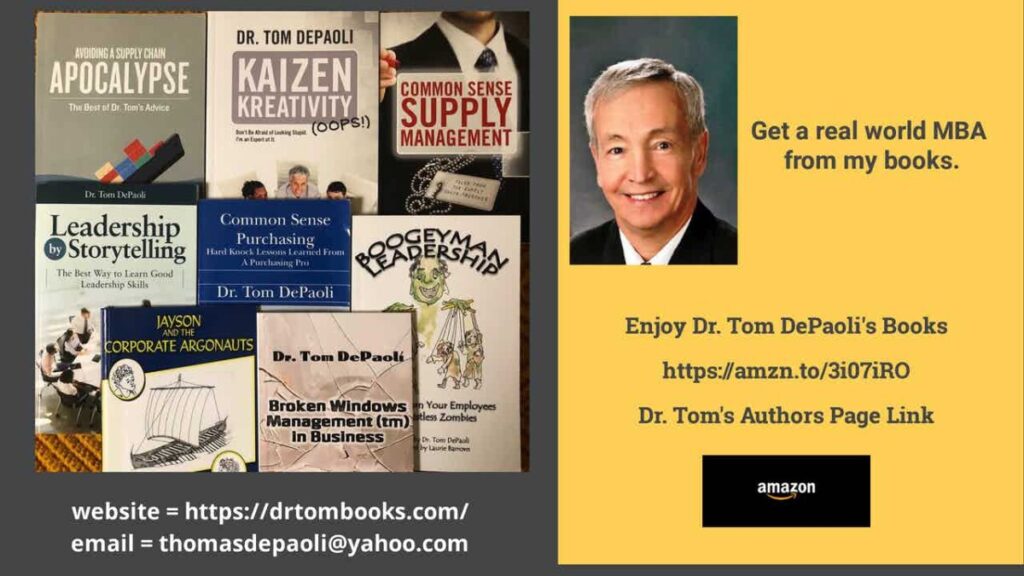Elevating Compensation Strategies: Dr. Tom DePaoli’s Insights on Pay for Knowledge and Pay for Skill
In the dynamic landscape of modern business, compensation strategies have evolved beyond traditional models to encompass innovative approaches that reflect the changing nature of work. Dr. Tom DePaoli, a distinguished expert in procurement, supply chain management, and process improvement, has provided valuable insights into compensation models such as Pay for Knowledge and Pay for Skill. These approaches not only recognize the evolving skill-sets of employees but also foster a culture of continuous learning and value creation within organizations. Let’s delve into Dr. DePaoli’s thoughts on these transformative compensation strategies.

Understanding Pay for Knowledge
Pay for Knowledge is a compensation model that values employees based on the depth and breadth of their knowledge, expertise, and intellectual contributions to the organization. In this approach, employees are rewarded for the specialized knowledge they possess, which directly contributes to the company’s innovation, problem-solving, and overall success.
Dr. DePaoli’s insights emphasize that Pay for Knowledge goes beyond the traditional focus on job titles or hierarchical positions. Instead, it recognizes that valuable insights and contributions can come from all levels of an organization. This approach encourages employees to actively engage in continuous learning, knowledge sharing, and professional development, ultimately leading to a more informed and empowered workforce.
Embracing Pay for Skill
Pay for Skill, as championed by Dr. DePaoli, centers on rewarding employees based on the acquisition and application of specific skills that align with the organization’s strategic goals. Unlike traditional compensation models, which often reward tenure or job titles, Pay for Skill places a premium on the practical skills that directly contribute to operational excellence and innovation.
Dr. DePaoli’s perspective on Pay for Skill underscores the importance of skill diversification and adaptability. As industries rapidly evolve, employees who possess a versatile skillset are better equipped to tackle new challenges and seize opportunities. By incentivizing skill development, organizations not only attract top talent but also ensure their workforce remains adaptable and competitive.
The Advantages of Knowledge and Skill-Based Compensation
Dr. Tom DePaoli’s thoughts on Pay for Knowledge and Pay for Skill reflect a forward-thinking approach to compensation that aligns with the demands of a rapidly changing business environment.
- Promoting Continuous Learning: Both models encourage employees to engage in ongoing learning and development, fostering a culture of improvement and innovation.
- Recognizing Value Creation: By rewarding employees for their expertise and contributions, organizations acknowledge the direct impact of their knowledge and skills on the company’s success.
- Attracting and Retaining Talent: Pay for Knowledge and Pay for Skill strategies can attract and retain top talent, as professionals seek environments that value and invest in their growth.
- Enhancing Organizational Agility: Skill-based compensation equips organizations with a versatile workforce capable of adapting to new challenges and opportunities.
- Aligning with Performance: These models tie compensation to measurable performance outcomes, ensuring that rewards are directly tied to value creation.
Conclusion
Dr. Tom DePaoli’s insights on Pay for Knowledge and Pay for Skill compensation strategies provide organizations with a framework to adapt their compensation models to the realities of a knowledge-driven economy. By valuing expertise, fostering continuous learning, and incentivizing skill development, businesses can create a workforce that thrives in the face of change and contributes significantly to their growth and success. As industries continue to evolve, these approaches serve as guiding principles for organizations seeking to cultivate a workforce that is not only compensated fairly but also equipped to excel in the dynamic business landscape.